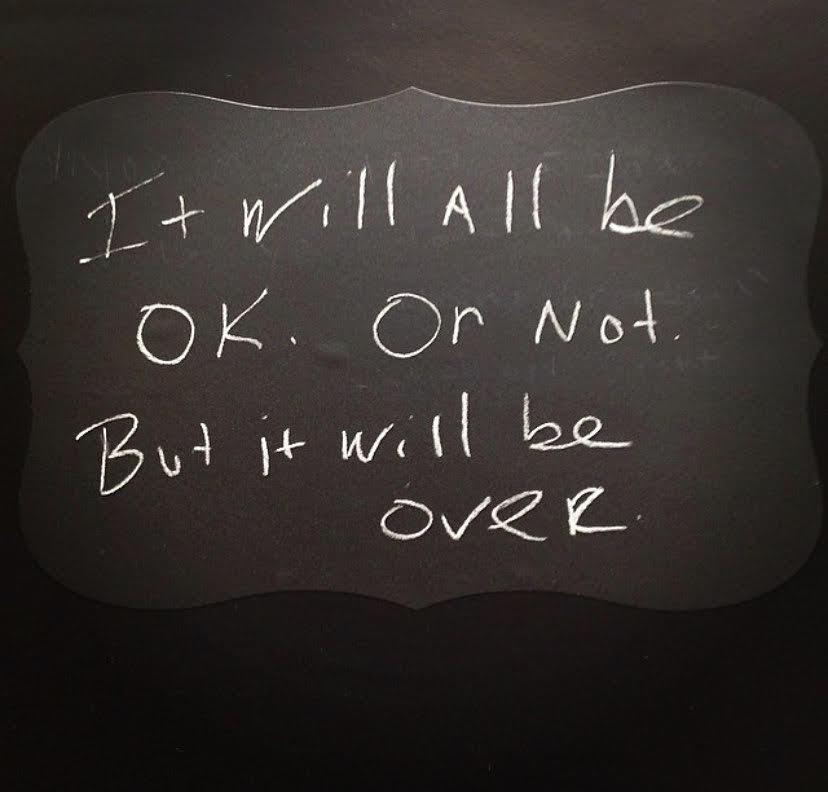What is an Ethical Will?
/ Coping with Grief : Litsa
The tradition of an ethical will, or a 'tzava’ot', comes from the Jewish faith. It is a document passed down through families that shares wisdom and values from one generation to the next. Though they are traditionally created by an individual dying before their death, there is also a space for them in grief.
What is an ethical will?
According to My Jewish Learning, "Traditionally, Jewish ethical wills contained a number of items, including burial instructions, debts and obligations to be paid, requests that family members carry on specific religious traditions, and blessings over the family. But modern ethical wills are less about accounting and instruction and more about imparting wisdom or wishes or simply reviewing one’s life. They are often written in the form of a letter and addressed to one’s children, but they can take many forms".
I learned of ethical wills when reading Before and After Loss: A Neurologist's Perspective on Loss, Grief, and Our Brain. When the author's husband was ill, the family gathered with him. Together they created their version of an ethical will. Family members shared the things that he taught them and that would live on through them. Things big and small. Things serious and silly.
I have now recommended ethical wills to many families who have loved ones who are dying. It is an incredible way for families to share what they will keep with them once a loved one is gone. For the dying person, they can share what they hope to leave behind that is not physical. Families can share what they will keep. And even if you cannot gather physically, these things can be shared through writings, videos, or audio recordings.
Adapting an 'Ethical Will' in Grief
If you follow along here at WYG, you know that this year I lost three people close to me, all unexpectedly. Ethical wills, in the traditional sense, are a luxury we have when we know a loved one is dying. In so many cases, we don't. Deaths can be unexpected. There is no time to acknowledge what was passed on before a person is gone.
In other cases, we might know someone is dying, but things get in the way. Not all people and families are open to rituals like ethical wills. Someone or everyone might not be open to acknowledging the reality that someone is terminally ill.
I have been thinking a lot about the way an "ethical will" can still be part of our grief after a death, even when one was not created in advance. As individuals, we can still take time to acknowledge these non-physical things that were left to us by those no longer with us. Part of our continued bond with our loved ones comes through these things they taught and left us. So it can be a meaningful exercise to record the many things we learned from them, that we carry forward.
Example of an Adapted 'Ethical Will'
Still not quite getting the concept? Let me give you an example. Earlier this year, I lost a dear friend and colleague, Erin. We are coming up on the year anniversary of her death. In this strange year of social distancing, when my grief felt especially solitary and disconnected, I have thought so much about the things she left me. These are things I am so grateful for, whether Erin knew it or not. In so many ways, these are the small and big things that keep me connected to her. They are the things she left me, whether she knew it or not.
- She taught me to look for the good in even the most complicated and challenging of people.
- I learned the incredible value of crafting for calm and sanity from Erin. And she always reminded me that it doesn't matter that I am terrible at crafting.
- Erin taught me about Fluid Movement, Baltimore's badass performance art (water-ballet) group.
- My first Baltimore Rock Opera show was a gift from Erin that left me kicking myself for never having checked them out sooner.
- She taught me the term "narcissexual". Though the urban dictionary would disagree, Erin coined this term to mean a person whose romantic "type" is narcissists, across the gender spectrum. This word has become a surprisingly useful part of my vocabulary.
- Erin embodied a quality of calm that reminds me even now that, no matter the chaos around me, I can always find peace.
- She inspired me with her ability to keep in touch with people. She always made a point to reach out and schedule get togethers. I am still bad at that, but I try to embody that quality of hers as best I can.
- She taught me a mantra I still think of often. She had it written above her desk. 'It will all be ok. Or not. But it will be over'.

Experience with ethical wills? We'd love to hear in the comments. Or feel free to use the comments as a space to share what non-physical things your loved one left you!
We wrote a book!
After writing online articles for What’s Your Grief
for over a decade, we finally wrote a tangible,
real-life book!
What’s Your Grief? Lists to Help you Through Any Loss is for people experiencing any type of loss. This book discusses some of the most common grief experiences and breaks down psychological concepts to help you understand your thoughts and emotions. It also shares useful coping tools, and helps the reader reflect on their unique relationship with grief and loss.
You can find What’s Your Grief? Lists to Help you Through Any Loss wherever you buy books:





Tobo May 20, 2021 at 4:44 pm
Thanks for the great article. I have been conducting debriefing sessions with religious leaders from different denominations. I only focused on values when getting them to appreciate their Dearly Departed. Now that I have an understanding of the Ethical Will I will include this in my future sessions. I look forward to learning more.
Joni Sensel February 11, 2021 at 10:59 pm
One of the key questions my therapist asked me to consider not long after my beloved’s sudden, early death was, “How has he changed you?” I think the idea of an ethical will — or an ethical legacy, if you will –is a similar question, and one of great value for the process of mourning. Of course, “How has grief changed you?” is a related and, for me, not terribly positive follow-up question… but that’s another story. Thanks for this post and food for more thought.